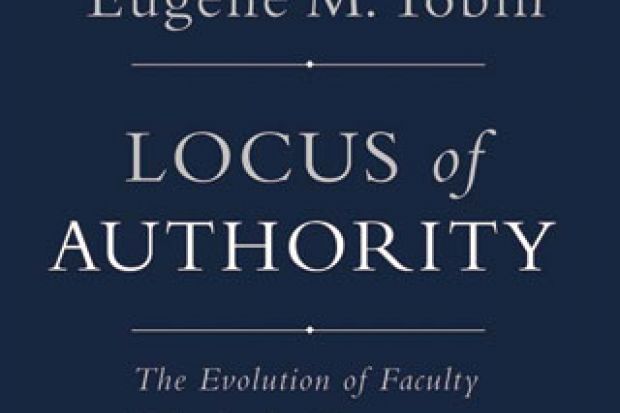I have to confess that when I was a student, indeed when I was in the early stages of my career as a lecturer, I had almost no knowledge of university governance. That changed four years into my first post, when I became an academic trade union activist. More recently, as some readers may know, I have become something of an anorak in this subject, having taken on the role in 2011 of chairing a review of Scottish higher education governance.
There is now a considerable body of literature on the subject, prompted in part by the fear that economic, demographic, political and cultural influences are changing the nature of universities and the experience of those who study and work in them. One of the themes running through this literature is a concern that decisions about how universities are run, what priorities they pursue and how they engage in their educational and scholarly mission are increasingly taken not by scholars but by professional managers and administrators, and non-academic governors.
In this context, a new study by two US academic leaders offers some promise. William Bowen and Eugene Tobin, former presidents of Princeton University and Hamilton College respectively, look at how the role of academics in the running of US universities has changed over time.
The key question that this book poses is simple enough: who actually runs a university? Not surprisingly, the authors never really get us to an answer, and perhaps this is because there isn’t one, and certainly not one that applies across all institutions. In the US as in the UK, power in universities is widely distributed, and decision-making is often conducted through processes of more and less formal negotiation. Academics have on the whole kept control of course content and decisions about student performance, but have far less influence over the overall institutional strategic direction in the context of which such decisions are taken.
Bowen and Tobin take us through some of the trends and developments that have affected the balance of decision-making power, such as the massification of higher education and the move to reduce public funding as a proportion of institutional revenues. These developments have made it necessary to professionalise university management and to take difficult decisions about institutional priorities, and the effect has been to move power from the faculty to institutional leaders and to independent/lay boards. How this has worked, and what impact it has had, is explored here through a number of case studies.
Higher education should be driven by “shared governance”, the authors conclude. But what they mean by this is not altogether clear. It may be nothing more than the suggestion that university leaders should have academic credentials that would be recognised as such by the academics they lead, and that they should be willing to talk about scholarship and education. While these are worthy objectives, this may not look much like shared governance to most observers.
Locus of Authority raises some really interesting questions, but its treatment of them is curiously unsatisfying. A large part of the book is devoted to anecdotal accounts of developments in particular institutions, and while these are interesting they disrupt the exploration of real principles rather than enhance it. The more analytical parts of the book are curiously hesitant, and often read more like an informal conversation than a treatise. I finished the book feeling that I hadn’t really got any further with any of the issues covered.
As I know from my own work on governance, and in particular from the responses to the publication of our Scottish review, there is no easy consensus to be built around these matters. Society has placed increasingly difficult burdens on universities. They are to educate and train, to support economic development, to overcome social disadvantage, to provide innovations in health and well-being – and all without excessively troubling the public purse. Achieving all this through consensus-based decision-making is a very tall order. But losing the cohesion of an academy sharing a common purpose will also undermine most of these objectives. There is still work to be done.
Locus of Authority: The Evolution of Faculty Roles in the Governance of Higher Education
By William G. Bowen and Eugene M. Tobin
Princeton University Press, 400pp, £19.95
ISBN 9780691166421 and 9781400865635 (e-book)
Published 11 February 2015
Register to continue
Why register?
- Registration is free and only takes a moment
- Once registered, you can read 3 articles a month
- Sign up for our newsletter
Subscribe
Or subscribe for unlimited access to:
- Unlimited access to news, views, insights & reviews
- Digital editions
- Digital access to THE’s university and college rankings analysis
Already registered or a current subscriber?





